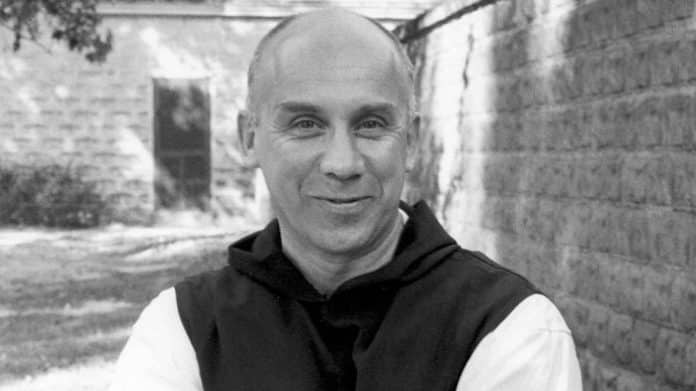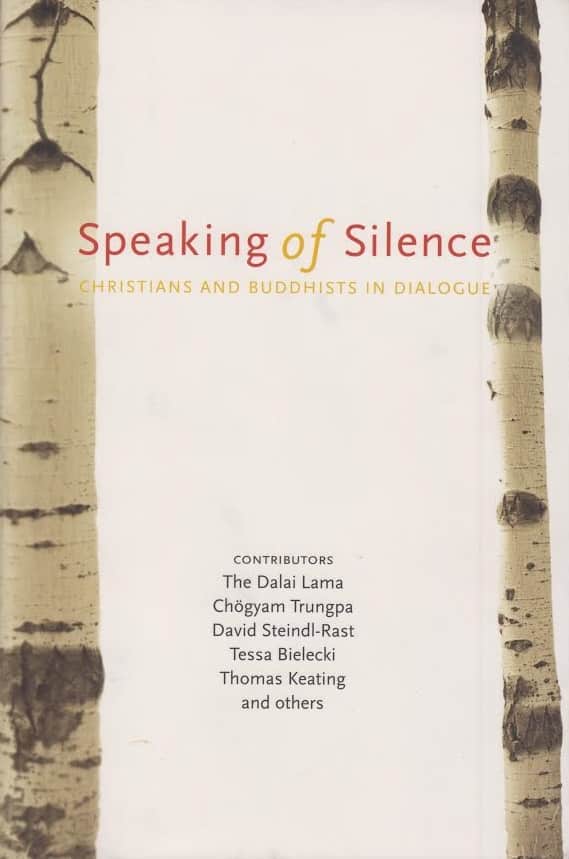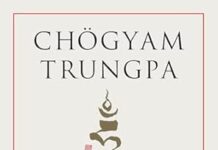
Trungpa Rinpoche had a great deal of appreciation for Christian contemplative traditions and practitioners. His interest in this realm started at Oxford in the 1960s, where he studied comparative religion with Father DeGives, a Jesuit priest who had spent time in Sri Lanka.
In the 1979 seminary transcripts, Rinpoche talks about the Franciscan monks he visited at their monastery in Midlands, not far from Oxford. He remembers the abbot as “extremely saintly, reminding me of one of my Tibetan teachers….He was a wonderful person, with neat but dirty robes, with a real monastic flavor about him.”
He also had some interesting things to say about other Western contemplative traditions. Regarding the Eastern Orthodox tradition he wrote: “The Orthodox tradition was actually the saving grace in my life at Oxford because its followers understand the notion of meditation, and they understand that meditation is not just doing nothing but also involves radiating one’s openness. The contemplative traditions within both Judaism and Christianity, particularly the Jewish Hasidic tradition and also the Orthodox Christian Prayer of the Heart … seem to be the ground for Eastern and Western philosophy to join together…. One of these days I am going to take my students to Mount Athos to see how the Orthodox monks conduct themselves.” -Chogyam Trungpa, 1980 Vajrayana Seminary Transcripts, p. 31.
In her introduction to Volume Two of the Collected Works, Carolyn Gimian wrote:
In 1977, I was privy to a discussion between Rinpoche and a Catholic priest that took place, oddly enough, at a Japanese teppan restaurant, where you sit around a central grill while the chef stir-fries your meal and then presents it to you. Since one of these grilling “islands” holds eight to ten people, you often sit with other diners who are not in your party. This particular evening, Rinpoche was with three or four companions. After we sat down, we were joined by two other diners, a Catholic priest and a relative of his. Rinpoche was seated right next to the priest. When he noticed that the gentleman next to him was a Catholic cleric, he couldn’t resist telling him stories about meeting Thomas Merton in India and about studying with Jesuits at Oxford. He wanted to know how the priest felt about Latin being dropped from the Catholic Mass (Rinpoche didn’t approve), and the two of them ended up talking about the meaning of the Holy Ghost, which Rinpoche thought represented the true mystical aspect of Catholicism, which he feared was being lost.
Meeting with Merton
After his retreat at Taktsang in Bhutan, where he received the Sadhana of Mahamudra, Trungpa Rinpoche travelled for a number of months in India. While in Calcutta, he had a chance meeting with Father Thomas Merton.
Father Merton’s visit to Southeast Asia took place when I was in Calcutta…. I had the feeling that I was meeting an old friend, a genuine friend. ln fact, we planned to work on a book containing selections from the sacred writings of Christianity and Buddhism. We planned to meet either in Great Britain or in North America. He was the first genuine person I met from the West. After meeting Thomas Merton, I visited several monasteries in Great Britain, and at some of them I was asked to give talks on meditation, which I did…. I was very impressed and moved by the contemplative aspect of Christianity, and by the monasteries themselves. Their lifestyle and the way they conducted themselves convinced me that the only way to join the Christian tradition and the Buddhist tradition together is by means of bringing together Christian contemplative practice with Buddhist meditative practice. -CHOGYAM TRUNGPA: From an address to the Naropa institute Conference on Christian and Buddhist Meditation, August 9, 1983
Father Merton wrote the following about the meeting in his journal:
Yesterday, quite by chance, I met Chogyam Trungpa Rinpoche and his secretary, a nice young Englishman whose Tibetan name is Kunga. Today I had lunch with them and talked about going to Bhutan. But the important thing is that we are people who have been waiting to meet for a long time. Chogyam Trungpa is a completely marvelous person. Young, natural, without front or artifice, deep, awake, wise. I am sure we will be seeing a lot more of each other, whether around northern India and Sikkim or in Scotland, where I am now determined to go to see his Tibetan monastery if I can. — Fr. Thomas Merton, Calcutta, October 20, 1968, From The Asia Journal of Thomas Merton












